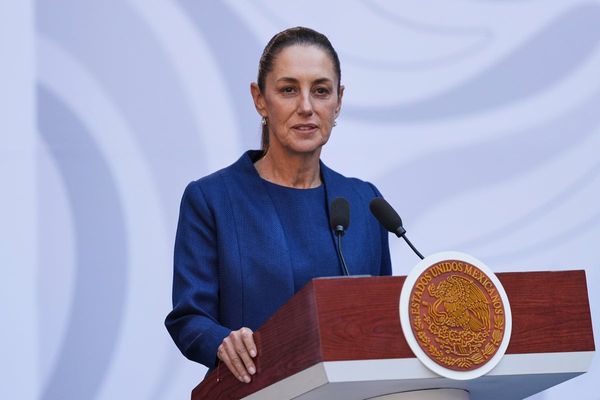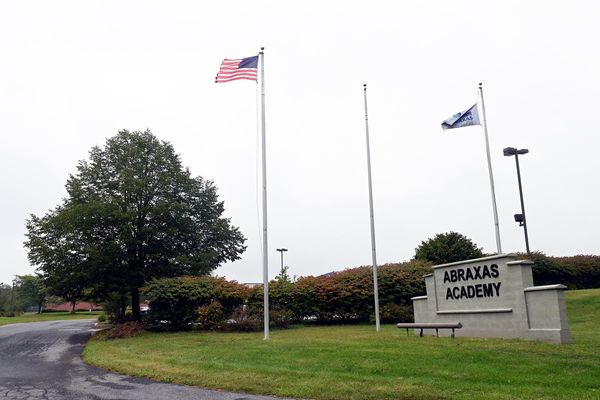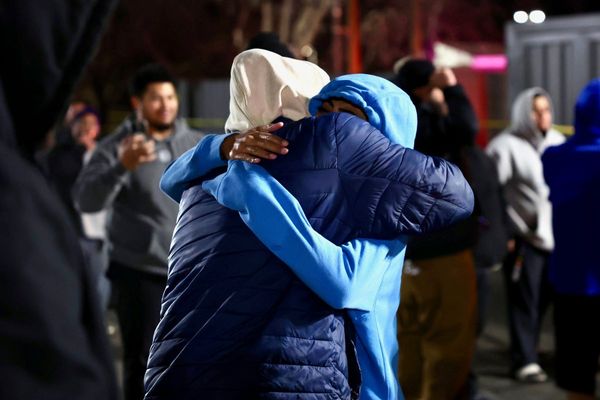
Sexual assault survivor and Australian of the Year Grace Tame says the Morrison government has made a “grave mistake” in appointing a new human rights commissioner who has expressed concern about affirmative consent laws.
In addition to Tuesday’s pointed criticism from Tame, Guardian Australia understands the government’s recent appointment of the Western Australian lawyer Lorraine Finlay has triggered concerns within the Australian Human Rights Commission itself.
Senior figures have expressed unease that Finlay was appointed by the Coalition without the position first being advertised, and that could jeopardise the AHRC’s “A status” with the United Nations.
A spokeswoman for the commission confirmed on Tuesday the AHRC is currently an internationally accredited “A status” national human rights institution under the UN Paris principles, and that accreditation would be reviewed next year.
She also confirmed one of the criteria for ongoing successful accreditation was “a clear, transparent and participatory selection and appointment process of commissioners”.
Tame’s criticism came during a Women’s Safety Summit convened by the Morrison government. She argued the “grave mistake” of the Finlay appointment exemplified “a fundamental lack of understanding at that top-level” about the issues being canvassed at the two-day summit.
“The foundation of the issue of domestic violence, the foundation of the issue of sexual violence is one of control,” Tame said on Tuesday. “It’s about abuse of power.
“Unless I stand up to that and call that out directly here on this platform, unless I say we’ve got people abusing their power in the highest position of power right now – I’d be a hypocrite.”
Tame declared the appointment reflected “a proven track record with this government with its inability to understand these issues – its inability to address the fundamental issue of women’s safety [even] within parliament itself.”
In an article published by Spectator Australia in 2018, Finlay argued there were “significant legal and practical problems” with affirmative consent laws, which require that consent before sex be actively sought and communicated.
She expanded on this view in a video interview with the men’s rights activist, writer and commentator Bettina Arndt.
After Tame’s criticism on Tuesday, Finlay issued a statement on social media. She said the need to protect victims from sexual and domestic violence was “urgent and undeniable”.
But she said concerns “about these reforms have been expressed by various legal experts and groups, including the NSW Bar Association, Law Society of NSW, Legal Aid NSW and the Office of the DPP (NSW).
“This is a law reform question that people can have different views about, while still sharing a firm commitment to condemning violence and protecting victims,” Finlay said.
Finlay said her work as a state prosecutor, and current work in the field of counter-trafficking, had demonstrated the importance of “listening to victims and empowering them”. She said she was committed “to working constructively to protect and advance human rights in my role as human rights commissioner”.
Finlay was appointed to the position by the attorney general, Michaelia Cash.
The Berejiklian government has flagged changing the laws around sexual consent to better deliver justice to victims and survivors of sexual assault.
That reform follows public campaigns by advocates including Saxon Mullins – another prominent survivor of sexual assault. On social media on Tuesday, Mullins said: “In 2018 I was awarded a human rights medal for my work in relation to sexual violence and affirmative consent advocacy. The new commissioner Lorraine Finlay directly opposes that advocacy.”
The Women’s Safety Summit wrapped on Tuesday afternoon after two days of powerful advocacy from a range of participants, including Indigenous leaders who have demanded an Aboriginal-led plan to reduce violence against women and children.
Thelma Schwartz, the principal legal officer for Queensland’s Indigenous Family Violence Legal Service, appearing on a panel with Tame on Tuesday afternoon, characterised violence against Aboriginal and Torres Strait Islander women and their children as “a national crisis, it is a national shame, it is beyond disgusting”.
She told the summit she intended to be direct in her advocacy. “I refuse to be used or seen as a tick and flick measure,” Schwartz said.
The Morrison government has signalled an intention to yield to the call for First Nations people to lead their own women’s safety plan. Although senior figures are clearly irritated that the summit has been accompanied by pointed criticism from Tame, the former Liberal staffer Brittany Higgins, some state safety ministers, and advocacy groups.
Scott Morrison referenced that criticism implicitly during an interview with Sky News on Tuesday. He argued there was a need to accept “other’s good intentions on this”.
“No one has a mortgage on good intentions, when it comes to dealing with these very difficult issues,” the prime minister said. “We all come to the table, trying to do our best”.
The minister for women Marise Payne also closed the summit with a strident call for cooperation.
Payne said she would be “deeply concerned” if women’s safety was not going to be pursued in a “non-partisan way” between the commonwealth and the states. She declared cooperation was at risk of being “thrown away now for their own reasons”.
Payne said constructive action to advance women’s safety was being pursued as part of a genuine effort to “move past so many of the political differences that bedevil governments these days – exacerbated by clickbait efforts on social media, exacerbated by small-minded political point-scoring – when we are, together, so much stronger, and so much more than that”.







